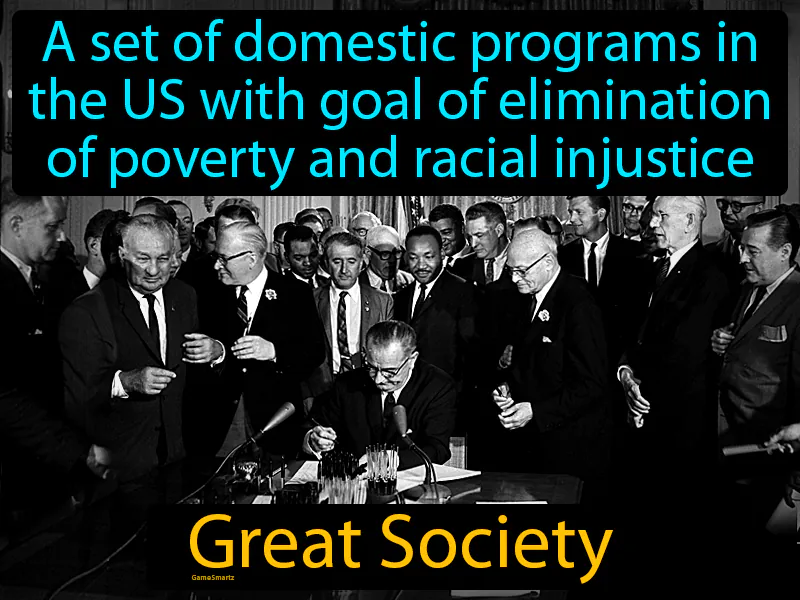Great Society

The Great Society was introduced by President Lyndon B. Johnson in the 1960s as a continuation and expansion of ideas from President John F. Kennedy's New Frontier. It aimed to reduce poverty and fight racial injustice through programs like Medicare, Medicaid, and the Civil Rights Act. At the time, America was facing significant social issues, including economic inequality and racial discrimination, which these programs sought to address. Today, the Great Society's impact is still felt through ongoing conversations about healthcare access and civil rights protections. For example, Medicare provides essential health coverage to millions of elderly Americans, ensuring they receive necessary medical care, which affects families and communities by promoting health and financial stability.
Practice Version

Great Society: A set of domestic programs with goal of eliminating poverty and racial injustice. Great Society. The Great Society was a series of initiatives launched by President Lyndon B. Johnson in the 1960s aimed at improving education, healthcare, and civil rights in America.